- Home
- Paul Christopher
The Templar Legion Page 9
The Templar Legion Read online
Page 9
“What about this Limbani character?” Lanz said.
“Dr. Limbani has been dead for quite some time,” said Marcel. But there was a faint flicker of apprehension and a little twitch of the eyes that went with the statement. Lanz decided to leave it for the moment.
“Where does Kolingba get his weapons?”
“I couldn’t say,” said Marcel.
The bartender was looking very uneasy now, and Lanz decided to back off completely. “Well, if you think of a way I could get in to see the man, let me know,” he said.
“Of course, sir.” There was a pause. “Will that be all?”
“Another beer, Marcel.”
After Lanz finished the second beer, he picked up his book and left the bar. In the lobby he spotted a lone man sitting in one of the fan-backed wicker armchairs, smoking a cigarette and reading a copy of Centrafriquepresse . He was the same man who’d followed him on his afternoon walkabout. Lanz smiled. Saint-Sylvestre’s surveillance was nothing if not obvious.
Lanz went up the broad, sweeping staircase to the mezzanine, then walked up three more flights to his small room under the eaves. It was simply furnished with an iron bedstead, a mattress that had seen better days and a simple spindle-legged desk with an old-fashioned brass swan-neck lamp. Lanz dropped the book onto the desk and stepped across to the window, which gave him a view over the square and into the compound directly opposite the hotel.
The compound ran a hundred and fifty feet on a side, the walls quarried cut stone, the large gate wood-strapped and hinged with iron. Guard towers, tin roofed and constructed from plywood, had been added at each corner. The so-called “presidential residence” was up against the east wall, and there was a rudimentary barracks building kitty-corner to it. A smaller brick building that sat directly across from the residence was almost certainly a guardhouse. The barracks looked as though it could hold between a hundred and a hundred and fifty men.
A tin-roofed shed had been built against the wall next to the guardhouse—obviously the motor pool. Lanz counted two bumblebee-striped Land Rovers with tinted windows, three armored personnel carriers and an even dozen “Mengshi” Chinese Humvee knockoffs painted in jungle camouflage, .50-caliber machine guns mounted just forward of the sunroof hatch. Considering all the other Chinese equipment he had seen, the machine guns were probably W-85s. Fourandao had a population of less than five thousand; the compound’s ordnance was easily enough to protect the town from direct assault as long as there was no air element.
Lanz went back to the desk and sat down. Taking up the book, he carefully stripped off the celluloid library cover and the original jacket. He set the book aside and laid the dust jacket illustration-side down on the desk.
Lanz had been a soldier since his compulsory military service in the late seventies. He’d worked with every sort of intelligence tool, from satellite imagery and phone taps to photo intelligence and drugged “persuasion” of the enemy. Of all these techniques he’d never found anything more useful and more accurate than the evidence of his own eyes.
On the inside of the dust jacket was an accurate scale map of central Fourandao, the information gathered during his afternoon strolls during the past few days. The map was drawn lightly in pencil directly from memory after each of his daily constitutionals.
Fourandao was laid out in an elongated grid centered on Plaza de Revolution de Generale Kolingba, the old city square directly in front of Lanz’s hotel. There was one main street running north and south, intersected by the road from Bangui that followed the west–east course of the Kotto River. On the outskirts of town the road from Bangui became Rue de Santo Antonio, and the north–south street was Rue de Liberdad. Two banks sat on the Rue de Liberdad—Banque Internationale pour le Centrafrique and Banque Populaire Maroco-Centrafricaine—and one on the square, the Bank of Central African States. Of the three, two were known to have been heavily involved in money laundering and financing for blood commodities. The Bank of Central African States occupied the only building of over four stories in Fourandao, the upper floors containing the People’s Republic of China consular offices, the Kukuanaland Department of Customs and Excise and the Department of the Interior.
The two main streets were the only ones that were paved; the interconnecting grid of residential streets were dirt tracks. Lanz could detect no sewer system of any kind, which meant that the interconnecting streets flooded during the rainy season. Except for the buildings on the square Fourandao relied heavily on tin-roof and concrete-block construction. In most cases the quality of the concrete blocks had been poor, and without any foundations or drainage the majority of the buildings were crumbling at their bases. The only exception to this was a walled and guarded group of three modern blocks of flats that appeared to be built out of concrete. From what he could gather from eavesdropping in the bar of the hotel these flats were occupied by government bureaucrats in favor with Kolingba.
On his walks Lanz had noted evidence of malnutrition and rickets among the population, and on several occasions he’d seen huge rats nesting in the garbagechoked ditches. Dense foliage encroached on the edges of the town, and he’d seen several native women carrying bundles of firewood out of the jungle. Fourandao was as close to the edge of civilization as it was possible to get. There was no police force, since that function was operated out of Saint-Sylvestre’s euphemistically named Department of the Interior, no fire department, no city hall or any other civil authority. Kukuanaland was a country in name only; in reality it was nothing more than a criminal fiefdom that probably didn’t stretch much beyond the town limits.
Smiling to himself, Lanz began neatly filling in the street names he’d gathered that day. Every battleground had its weaknesses and he was reasonably sure he’d discovered Fourandao’s.
Oliver Gash sat in Captain Jean-Luc Saint-Sylvestre’s office overlooking the Plaza de Revolution de Generale Kolingba and studied the huge aerial photograph of Fourandao that took up the entire wall behind the policeman’s massive African mahogany desk, rumored to have once belonged to Mobutu Sese Seko, the long-dead dictator of Zaire, who had in turn purchased it from the estate of the late General Gnassingbé Eyadéma, the long-standing “president” of Togo. Both Gash and Captain Saint-Sylvestre were smoking Marlboros, the cigarette of choice among those in Kukuanaland who could afford them. Gash had once joked to General Kolingba that they should advertise in tourism magazines abroad, touting Kukuanaland as a vacation destination for smokers. Kolingba had taken him seriously and Gash had to spend weeks talking him out of it.
“So what exactly does he do on these little walks?” Gash asked.
“He walks.” Saint-Sylvestre shrugged.
“No camera?”
“None that we can see.”
“Anything in his room?” Gash asked.
“Nothing incriminating. He has a number of weapons catalogs.”
“Did you run a background check?”
“Of course. He could be what he says he is—at first glance he appears to be an experienced mercenary who knows Africa well.”
“But you have doubts,” said Gash. It was a statement, not a question.
“I always have doubts, Dr. Gash. It is my business to have doubts. Our friend Lanz doesn’t ring quite true. Why does a mercenary soldier suddenly switch to being an arms dealer? Why would a supposed arms dealer travel here knowing perfectly well that we are supplied by the Chinese and have been since the beginning? There are no fools in the arms business and if a man is an arms dealer he is a fool. Ergo, I don’t believe it.”
“All right,” said Gash, stubbing out his cigarette in a huge ceramic ashtray on the desk in front of him. “What is he doing here?”
Saint-Sylvestre smiled. “At a guess I would say he’s on a reconnaissance mission.”
“To do what?”
“To facilitate a coup d’état,” said the policeman mildly.
“Dangerous words, Captain,” responded Gash. “Talk like that could get you into s
erious trouble.”
“I’m not promoting the idea, Dr. Gash; I am merely giving my opinion.” Saint-Sylvestre was well aware that he had to take a very circumspect path with Gash. The man was an uneducated savage, but he had what the Americans called “street sense” and a certain animal shrewdness that was sometimes mistaken for intelligence. Worst of all Gash had the killer instinct of a sociopath, which would have been Saint-Sylvestre’s diagnosis had he been a doctor. In some ways Gash was even crazier than Kolingba.
Gash lit another cigarette, smirking as he did so. “All right, then, Captain, in your opinion, who is he working for?” In Baltimore it would have been easy to figure out which of your rivals was strong enough to make a play for your turf; here the same rules didn’t apply.
“I’m not sure. Originally I thought it might be one of our neighbors—Chad, the Congo, Cameroon—but I don’t think that’s the case.”
“Why not?”
“He’s white, for one thing. I seriously doubt that the government of Chad would hire a white mercenary, not to mention the fact that they’ve got too much to lose internationally. The same is true of the Congo—to be seen as an aggressor now would be all the excuse the U.N. would need to send in troops. Cameroon doesn’t have the money to launch a serious invasion and they’d have to go through the rest of the country to get to us. It doesn’t make sense.”
“What does?”
“He came here from Mali, but he wasn’t hired there. He also mentioned a man named Archibald Ives. I asked a few questions. Ives was a geologist.”
“Was?”
“He’s dead. Murdered in the Sudan.”
“There’s no oil in the CAR is there?” Gash asked.
Saint-Sylvestre shook his head. “Not a drop. They gave up looking for it years ago.”
“What, then?”
“He was a primarily a mineral geologist, a prospector. If he was in Kukuanaland there’s no record of it, so that means he came in illegally, probably through the Sudan.”
“Looking for what?”
“I spent some time thinking about that,” said Saint-Sylvestre, leaning back in his chair. “Any geologist in his right mind wouldn’t come into Kukuanaland on a whim. He must have known what he was looking for. The only way he could have known that would be through remote sensing, probably from a satellite.”
“The Americans? The CIA?”
“No, they wouldn’t risk the political blowback if they were found out, and we don’t have anything they want anyway. Kukuanaland is hardly strategic.”
“They’d like to wipe us off the map; I know that much,” said Gash. “That creepy secretary of state keeps on making all these war-criminal claims about the general.”
“You don’t need a geologist for that,” said Saint-Sylvestre. He shook his head. “No, somebody was looking for something and they found it. This Ives fellow was sent in to corroborate whatever their remote sensing told them. Lanz is here because the only way these people can get what they want is by getting rid of General Kolingba.”
“A mining company?” Gash said.
“A big one.” Saint-Sylvestre nodded. “Big enough to have access to a remote sensing satellite. Big enough to finance a small war.”
“So we bring Lanz in and you interrogate him.”
“To what end?” Saint-Sylvestre said. “We’d find out who the company was, but not what they’re looking for, because I guarantee that Lanz doesn’t know. If Lanz fails in his mission they’ll just send in someone else.”
“So what do you propose?”
“We continue surveillance; let him think he’s getting away with it.”
“And?”
“Eventually he’ll pack his bag and go. And I’ll be right behind him.” Captain Jean-Luc Saint-Sylvestre sat back in his chair and smiled.
12
Peggy sat in the copilot’s seat of the Catalina’s skeletal cockpit and stared down at the mottled green landscape three hundred feet below. Doc and Rafi were asleep on the piles of equipment in the rear of the big amphibian. “You never think of the Sudan as being green,” she said. “It’s all about Darfur and droughts.” She tripped the shutter release on the Nikon and took a half dozen more shots.
“Southern Sudan is a whole different thing,” said Mutwakil Osman, the Catalina’s pilot. “Twice the size of Texas and about a third of the population—less than seven million people.”
“It looks beautiful,” said Peggy.
“Not for long,” said Osman. “When big corporations have their way it’ll be clear-cut, strip-mined and turned into an oil field within ten years.” He glanced over the side. “There’s the river.” Directly in front of them the sun was beginning to slide out of sight, turning the horizon into a flaring line of golds and reds that stretched into darkness on either side. “Just enough light to put her down.”
Osman gently pushed the oversized wheel forward, then toed the left foot pedal. The plane went into a long sliding turn down the wide expanse of the silvery river snaking beneath their wings.
There was a faint vibration throughout the hull as the aircraft touched the surface of the river, slicing into the dark water and sending up a rooster-tail spray that rose up on both sides of the cockpit like a curtain that dropped away as Osman throttled back on the engines. Peggy noticed a half dozen dugouts on the water, the men slapping at the surface of the river with their paddles.
“A welcoming committee?” Peggy asked.
“Croc beaters.” Osman grinned. “Hit one when you land and it could flip the old girl on her ass.”
Osman guided the plane toward a narrow wooden pier. Docked there was an ancient river barge steamer that made the African Queen look like a speedboat. The steamer was about sixty feet long, twenty-five feet wide and had shrouded paddle wheels on either side of the deck. Rising above the tarred hull was a squat engine house and above that was a rickety-looking wheelhouse. At one time or another someone had attempted to paint the superstructure of the steamer white but the sun and the rain had steadily done their work and where any paint was left the color was a dejected gray. The entire vessel seemed to sag in the middle like a tired old horse.
“What on earth is that?” Rafi said, poking his head through the bulkhead door.
“That’s the Pevensey,” said Osman. “She delivers supplies up and down the river. You’ll be taking her to the first cataract.”
“I’m surprised she floats,” said Rafi.
Osman killed the engines and they coasted the last hundred feet, sliding up on the shallow, sloping mud beach beside the pier. “Welcome to Umm Rawq,” Osman said. He reached out and slipped a CQ radio frequency card out of a holder beneath the fuel gauge. He handed it to Peggy. “Hang on to that. If you ever need a lift sometime, just give me a call.” He gave her a grin, then went off to speak to the captain of the Pevensey while Peggy, Rafi and Holliday began to explore the village.
Umm Rawq was a sordid little place with a single street of mud-brick hovels and a sheet-metal shanty selling banana beer and Batman Forever glasses from Mc-Donald’s. The whole village smelled of fish. An unseen radio boomed out tinny Afropop, and children played in the muddy, rubbish-littered road. None of the children were older than three or four, and the only male in the village was the gray-haired old bartender. The only other adult males they’d seen since landing were the crocodile beaters.
“Not the most hospitable place in the world,” Doc said.
“It looks like the Lord’s Resistance Army has been through here,” said Peggy. “They take all the children over eight or nine and the able-bodied men. All in the name of God. Rape, murder, mutilation.”
“I thought they were in Uganda?” Rafi said.
“They’re spreading all over central Africa now. Here and the Congo as well.”
“I’ve seen enough of Umm Rawq,” said Holliday. They returned to the dock just in time to see Osman before he headed back toward Khartoum. The crocodile beaters had landed their long, narrow dugouts and were
busy taking supplies from the Catalina on board Pevensey.
“I had a talk with Eddie,” said Osman. “He was only going as far as Am Dafok this trip but he’s willing to take you as far as the first cataract.”
“Eddie’s the captain?”
“Edimburgo Vladimir Cabrera Alfonso, to be precise,” said Osman with a smile.
“Edimburgo Vladimir?” Peggy said.
“He’s Cuban. His mother liked the name Edinburgh, as in Scotland, so she called him Edimburgo, but when she went down to the registry office the official said Edimburgo was an ‘enemy’ name, so she had to tack something revolutionary on to balance things out—hence the Vladimir. Cabrera is the father’s name. Alfonso is the mother’s, which is how they do it in Cuba. His friends call him Eddie. He was over here as an ‘adviser’ during the Angola crisis in the nineteen seventies and he defected. He’s been here ever since.”
Eddie turned out to be six-foot-six, coal black, completely bald and as muscular as a stevedore. He flashed a million-dollar smile, and the twinkle in his eye made Holliday like him immediately. Eddie moved with the grace of a dancer, which as it turned out was how he’d been trained—ten years with the Cuban National Ballet, then off to Angola. He wore a black KA-BAR bowie knife the size of a short sword in a sheath on his hip.
The interior of the Pevensey was as ramshackle as the outside of the boat. Two passenger cabins were tucked behind the engine room, both the size of confessionals, and there was a “lounge” behind the wheelhouse with a grimy porthole on either side. A carpet the color of mold sat atop the worn decking, accented by a red velvet couch that had turned pale pink over time and that obviously doubled as the captain’s bed.
While the croc beaters loaded all their supplies on deck, Captain Eddie ushered them into the lounge and offered them drinks, which turned out to be a choice of either Mamba malt liquor or 112-proof Red Star Chinese vodka. Holliday, Rafi and Peggy chose the malt liquor as the lesser of two evils. Eddie lit a long Cohiba cigar with a battered Zippo and poured himself a generous tumbler of vodka, then settled himself into an old wooden office chair. Along with a homemade chart table and the couch, the office chair was the only furniture in the little room. Behind the tall Cuban’s head, resting on three pegs in the wall was an old, well-used-looking AK-47. The room was lit by a large window covered with a pair of grimy, tacked-on homemade cardboard shutters.

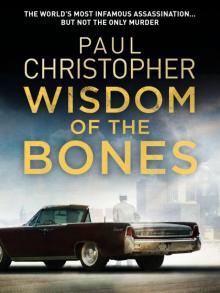 Wisdom of the Bones
Wisdom of the Bones The House of Special Purpose
The House of Special Purpose The Second Assassin
The Second Assassin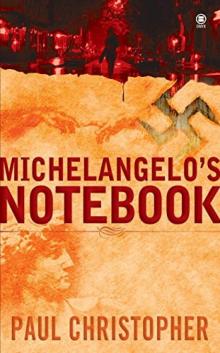 Michelangelo's Notebook
Michelangelo's Notebook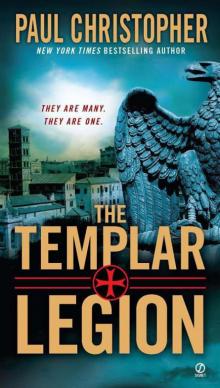 Templar Legion
Templar Legion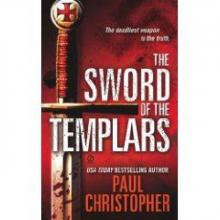 The Sword of the Templars t-1
The Sword of the Templars t-1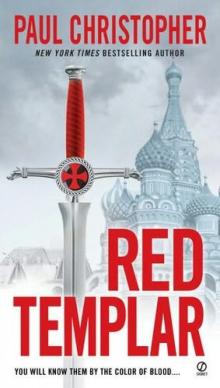 Red Templar
Red Templar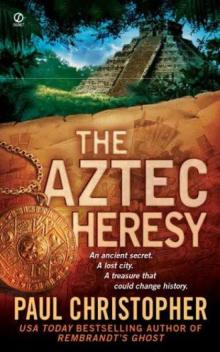 The Aztec Heresy
The Aztec Heresy The Templar Legion
The Templar Legion Rembrandt's Ghost
Rembrandt's Ghost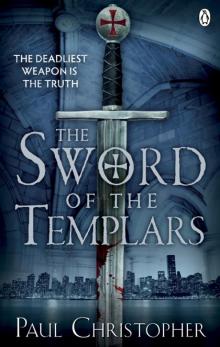 Sword of the Templars
Sword of the Templars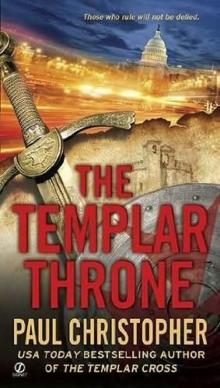 The Templar throne t-3
The Templar throne t-3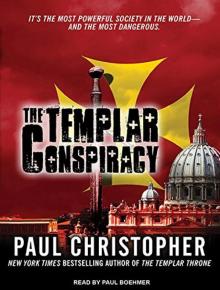 The Templar Conspiracy
The Templar Conspiracy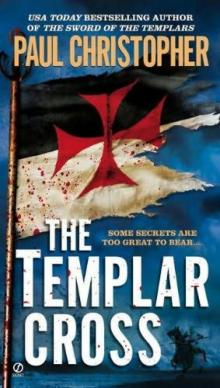 The Templar Cross t-2
The Templar Cross t-2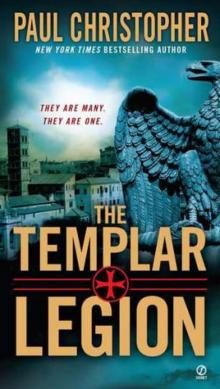 The Templar Legion t-5
The Templar Legion t-5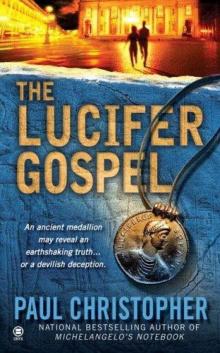 The Lucifer Gospel
The Lucifer Gospel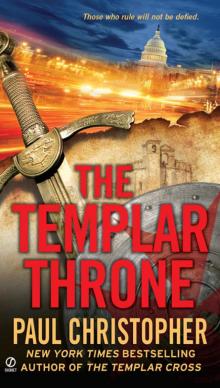 Templar Throne
Templar Throne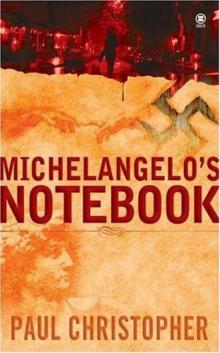 Michelangelo_s Notebook fr-1
Michelangelo_s Notebook fr-1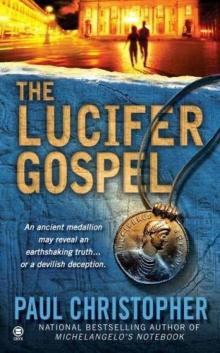 The Lucifer Gospel fr-2
The Lucifer Gospel fr-2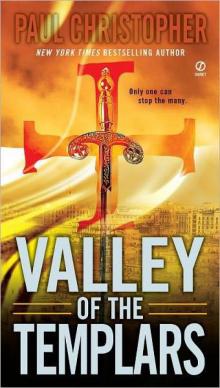 Valley of the Templars ts-7
Valley of the Templars ts-7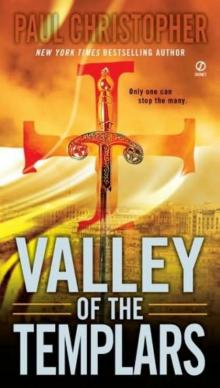 Valley of the Templars
Valley of the Templars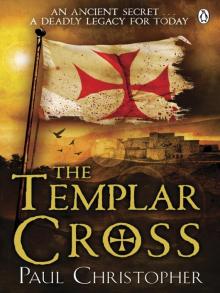 Templar Cross
Templar Cross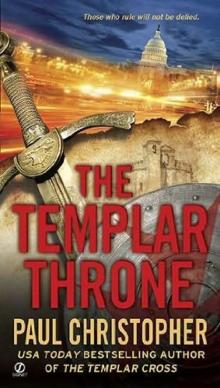 The Templar Throne
The Templar Throne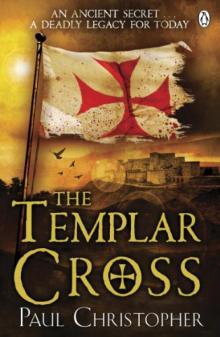 The Templar Cross
The Templar Cross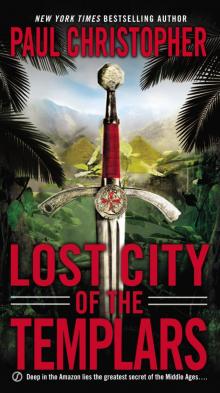 Lost City of the Templars
Lost City of the Templars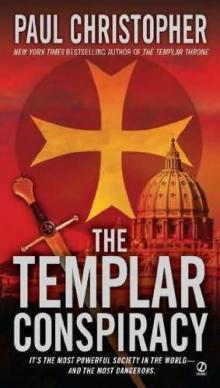 The Templar conspiracy t-4
The Templar conspiracy t-4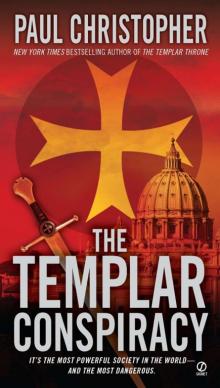 Templar Conspiracy
Templar Conspiracy